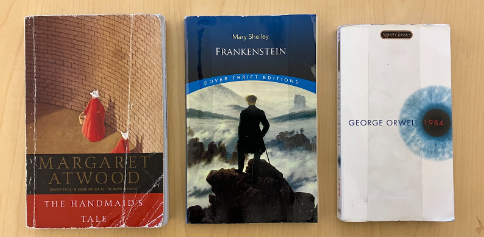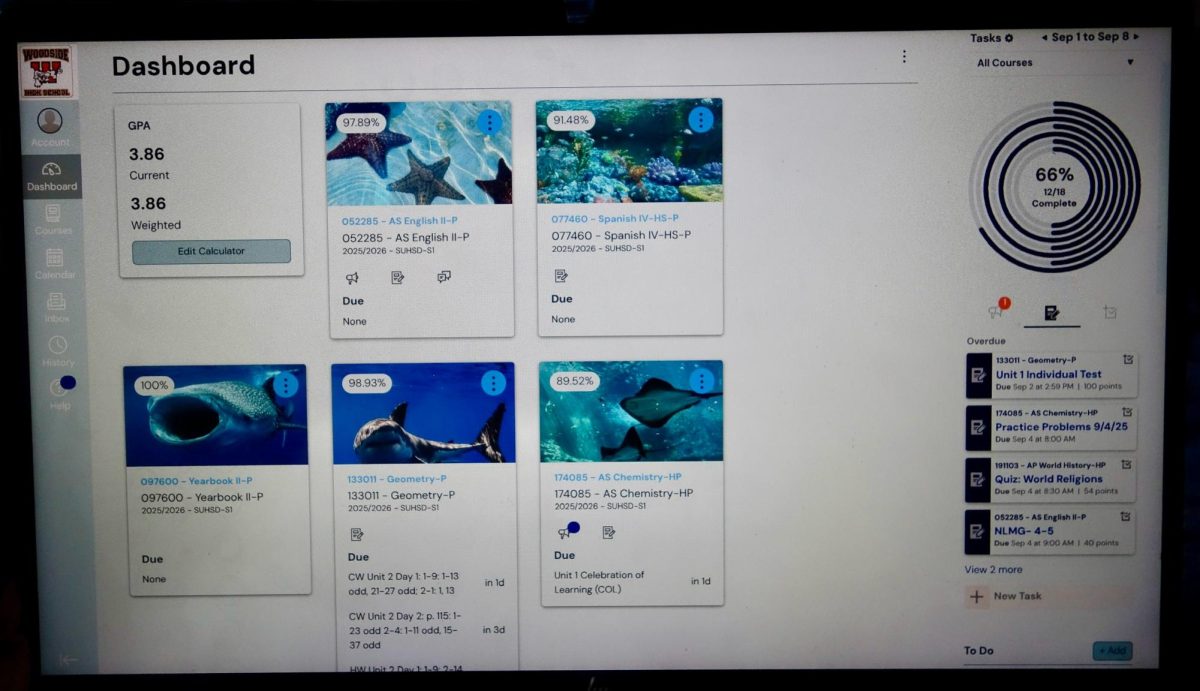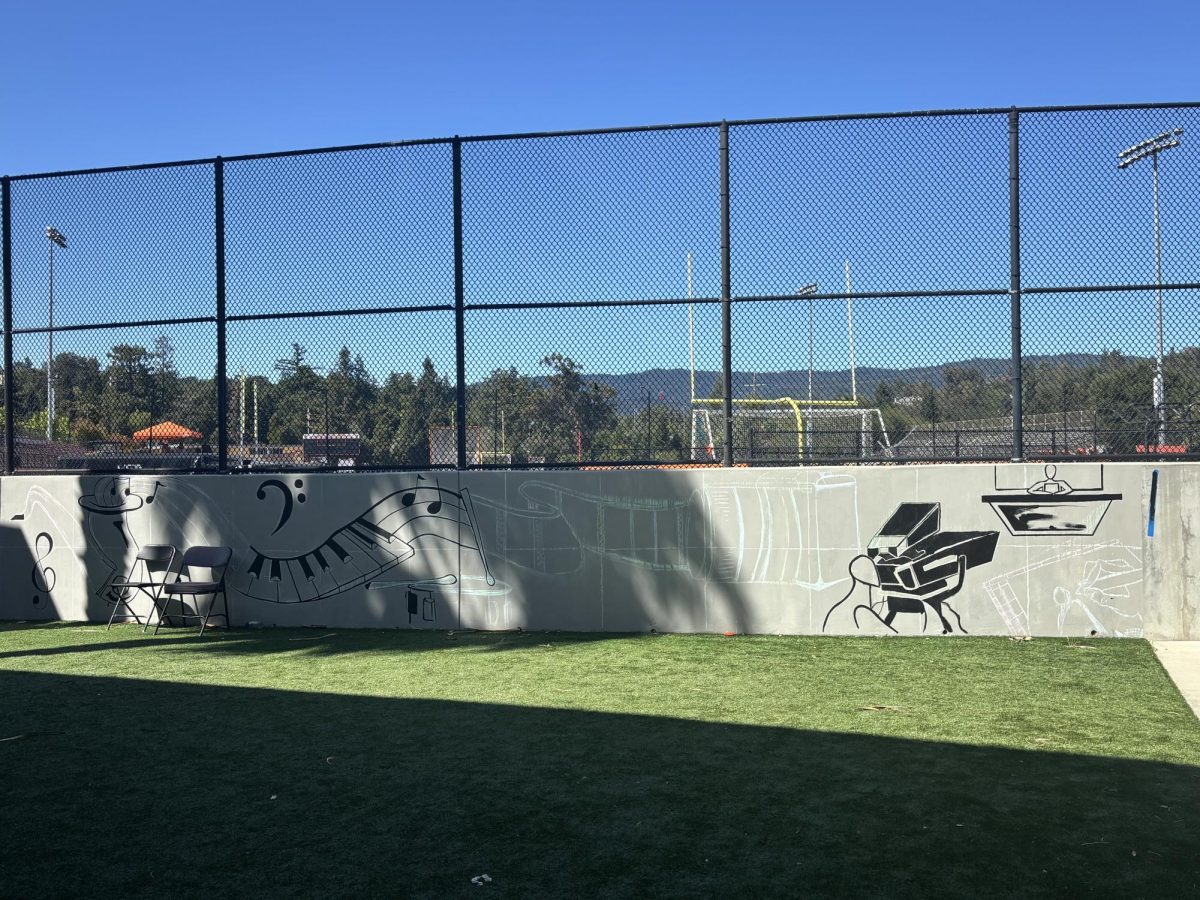A wide range of books are taught in Woodside’s English curriculum, yet speculative fiction remains constant across grades and teachers, used widely to teach students important lessons.
Speculative fiction is a wide genre of fiction, defined as stories asking questions about what might be possible, then expanding on the idea, creating a world centered around the hypothetical. Teachers shared that the genre is something used for learning because of the well-known pieces of literature that fall under this category.
“When I think of what speculative fiction means, it presents the question, ‘what if?’,” English IV and Advanced Placement (AP) English Literature teacher Lisa Camara said. “It’s not necessarily always dystopian or science-fiction…in my curriculum, we read ‘The Underground Railroad’, which presents this kind of fantastical idea that the underground railroad was actually a railroad [or] a train.”
According to the University of San Francisco, speculative fiction is something that should be taught to give people hope in creating change towards a better world. Because of the imagination built through the envisioned worlds of speculative fiction, people can manifest the better world they want to see.
“Speculative fiction…takes aspects of society that exist today,” Advanced Standing (AS) English II and psychology teacher Pirayeh Zargar said. “It speculates what can happen if certain problems in society are not fixed.”
Camara said that this kind of fiction brings out questions for people today, letting people consider ethics in a parallel yet distinct environment.
“[A book] I teach is ‘Frankenstein’,” Camara said. “[It’s] a good example of speculative fiction because the question is, ‘what if we were able to create life out of death?’ Should we challenge the laws of nature?”
Zargar said that speculative fiction is something that people should use to think about society today and the actions taken today, in order to think about what might happen if problems go unsolved.
“All of the books we read this year…have a narrator at the very center of each story that thinks they have more or less power than they actually do [regarding] what happens to their lives,” Zargar said. “I think it’s a good time for students to consider their personal power as sophomores.”
Throughout Woodside’s English curriculum, speculative fiction is taught through books like “1984” and “The Handmaid’s Tale.” The specific sub-genre centered around what might happen if current societal issues are carried on into the future is especially impactful to students, according to junior Garret Bailey.
“[Speculative fiction] just [warns] us about general ideas that go too far,” Bailey said. “In ‘The Handmaid’s Tale,’ there’s sexism and there’s not enough people that stand up [against] it.”
There are many different time periods from which speculative fiction is drawn for Woodside’s curriculum, and Zargar said they all address a specific problem prevalent during the time, but the purpose of the genre is straightforward and important.
“The hope [of speculative fiction] is that people pay attention,” Zargar said. “You don’t just live this passive life where things happen to you, you become the person that happens to life.”






